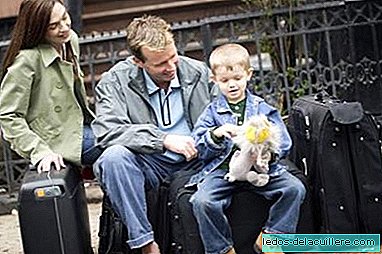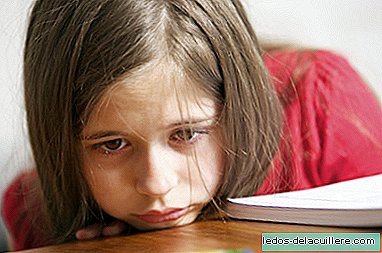
It is a frequent complaint of parents of teenage children: "My son is hooked on mobile". They spend the hours glued to the screen, they ignore us when we talk to them and it seems that they end the world if they have to separate from the precious phone even if it is twenty minutes for dinner.
However, although these behaviors irritate us (and worry us), we must distinguish between an abusive use of new technologies and a true addiction, which experts call "non-substance related addictions" and have consequences as serious as alcohol or the drugs. Here the keys to know if your teenager is addicted to new technologies.
Alarming figures
According to data from the Ministry of Health, 18% of young people between 14 and 18 years of age use the Internet compulsively. It is not about addicts, but they say they cannot spend much time without connecting to the Internet or social networks and that not doing so causes them anxiety or discomfort.
Concern for this phenomenon is such that for the first time "addictions without substance" such as new technologies, games or video games have been included in the National Addiction Strategy approved at the beginning of the year.
Mireia Navarro, director of the center of Psychology and Speech Therapy Teu Espai explains how these new addictions affect:
"There really is no substance that is generating physical and organic changes in our body, such as tobacco, alcohol or other drugs. But neurophysiological changes exist even without substance. Our brain soon becomes addicted to these changes and neurotransmitters. that are segregated as is the case with gambling addiction. "
But the difference from other types of addictions is that the new technologies They are essential to communicate with the world, they are in our day to day and, therefore, we could be facing a bigger problem than we imagine:
"If we add to these neurophysiological changes the need of the adolescent to feel accepted by the group, the need to have followers, to like them, to show their life and to think that the other has a better life for what hangs on Facebook, we have the perfect ingredients to increase the percentages of addicts in the coming years. "
Along the same lines, Professor of Psychology at the University of Santiago de Compostela Antonio Rial warns about the dangers of the internet and social networks:
"The kids who make abusive use of the Internet are more likely to develop behavioral problems, hyperactivity, anxiety, depression and even suicidal ideation. There are many studies that exist. 93% of young people are registered in a social network. More than half, in four or more. The fact that the development of self-esteem and personal image depends on the type of interaction you have in a social network changes everything. Exposure is greater. Vulnerability and dependence, too".

How can I know if my child has a problem?
It is difficult at first sight, because the mobile seems an extension of the arm of our teenage children, and, what is worse, also of the children, who access these devices more and more soon.
The key is to look at behavioral changes and how you react when you can't connect. Mireia Navarro explains that a series of criteria must be met to talk about an addiction:
- Pass many hours every day hooked, so many that other activities are not carried out.
- Isolation: stop interacting with your friends and family in a meaningful way, that is, much less than before or is only related in a virtual way.
- Lower your school performance significantly.
- Stop doing activities you used to be able to be connected for longer.
- Experience anxiety when you can't connect to the internet He gets very nervous at the mere idea of not being able to watch what happens on social networks.
- Humor changes frequent and increased irritability.
- Sleeping problems. You can spend hours connected at night and, therefore, sleep much less or problems may simply fall asleep or stay asleep.
- He abstinence syndrome It appears when you cannot connect and manifests with anxiety, irritability and desperate search for some way to connect.
How is it treated in the consultation?
Addiction to new technologies is already a reality in psychology consultations, where it is treated in a similar way to gambling addiction, as Navarro explains:
- Control of connection hours by a co-therapist (who can be the parents or another adult in their environment). The adolescent cannot control himself, therefore we need, especially at the beginning, a firm external control.
- Disease awareness: help the adolescent to understand that there is an addiction, which is not what everyone does, that it is not an appropriate use. To advance the treatment it is essential that the person identifies with his addiction.
- Psychoeducation: understand how they engage in ICT, how to make good use, how to work my dependence on social networks, let them see how their lives have changed with addiction, etc.
Public programs
There is also the possibility of going to public bodies in the event that we think that our child could have this problem. For example, the Community of Madrid has just launched a specialized intervention service for addictions to new technologies that will serve adolescents between 12 and 17 years old.
In addition to evaluating young people and treating those who need it, training and dissemination activities will be carried out aimed at professionals working with children and adolescents and families interested in knowing more about the use, abuse and dependence of new technologies.
In Babies and more WhatsApp increases the minimum age of use from 13 to 16 years, but the responsibility remains with the parents: what the experts say, To be safe: Decalogue of the Good Use of Information and Communication Technologies












